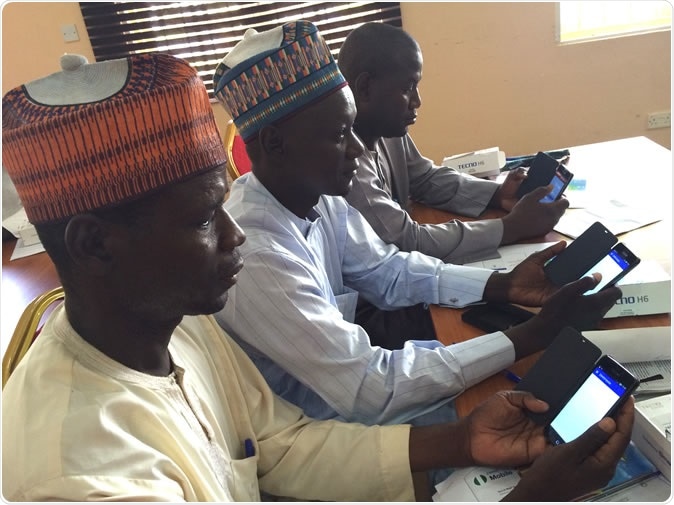For the first time ever, the World Health Organization (WHO) has brought together experts in the domain of public health to discuss how digital health technologies can help achieve its goals of global health. The panel, called the Digital Health Technical Advisory Group, discussed a wide range of topics from how data is dealt with, through issues of cost-effectiveness and evidence-based decision making, to making digital health a widely available and ethically bound solution.

Credit: WHO / Chris Haskew
The meet is a follow-up to realize the aims of the World Health Assembly resolution WHA/71 A71 on digital health. The contributors include global nonprofits like PATH, government experts, scientists from civil society and those who actually develop the digital health technology such as those in artificial intelligence, virtual and augmented reality, robotic health devices, wearable health monitors, and computerized imaging and therapeutic modalities. The diverse range of representation means that the WHO has access to the views and insights of public, private, engineering and social sectors in evolving policies and recommendations in the field of digital health technologies.
WHA/71 A71 – the implications
The WHA/71 A71 resolution recognizes that sustainable development is necessary in the advancement of digital health, and the importance of human interactions is also emphasized. Robots and on-screen images cannot take the place of human caregivers in managing disease conditions, but can be extremely useful tools for the achievement of optimal health. The aim of developing the potential of digital health technologies is to provide capable handmaids to health systems already in place, to extend their reach and to do what they are not doing at present due to scanty or insufficient resources. The target is integrated healthcare which is centered on patients as actual people, while being geared to the enhancement of population health as a whole.
Prime areas
The meeting which lasted two days evolved a plan to help shape future areas of activity and focus for the next two years, aimed at giving clearer form to the involvement of the WHO in transforming global health using digital technology. The target of the plan is to exploit digital health technologies to the utmost and to map the future trends and tools for this field. In the words of Bernardo Mariano, who directs the WHO’s fledgling Department of Digital health and Innovation, “Digital technologies can play a powerful role in improving the health of people worldwide.”
Some of the areas include:
- Setting up a global paradigm for the validation, execution and scaling up of digital technologies in health
- Arriving at guidelines for the use of digital technologies in a safe and ethical manner, to improve national healthcare systems through more widespread and high-quality care, with better access to a solid database of health information, in a safe and ethical use
- Exploring the role of advocacy and partnership models to speed up the use of digital health technologies to improve outcomes of healthcare
- Evolving recommendations on how to make newer digital technologies available to the global consumer base so as to ensure an equitable spread of this resource
Expected benefits and challenges
The outcomes will be safer and tested technologies for a greater number of countries all over the world. The experts are looking at extending the reach and efficacy of primary health care, combating new and emerging disease threats, and fostering the spread of digital health technology with all its attendant benefits to the greatest number of people worldwide. Looking ahead to a world in which digital health will become commonplace, Mariano comments, “What we call ‘digital health’ today will be, in future, known simply as the way we deliver health services in the digital age.”
The panel will meet several times in a scheduled manner to discuss and put into action their plans to advance the digital health program of the WHO. Many digital technologies are intimately connected with each other, and one cannot be developed without the existence of other systems. Established standards of treatment must also be considered when putting new digital systems in place, as well as the suitability of the existing environment, in the light of the interdependence of various emerging technologies. Thus the pace of progress must necessarily be slow in many locations, but the WHO will strive for a fair distribution of digital health technologies irrespective of socioeconomic status.